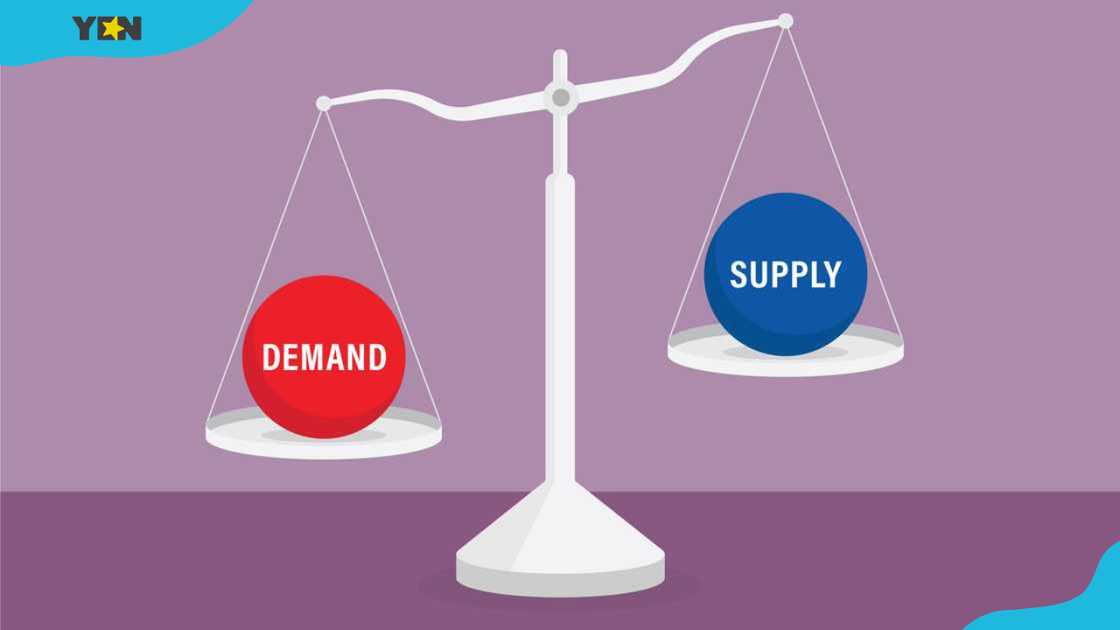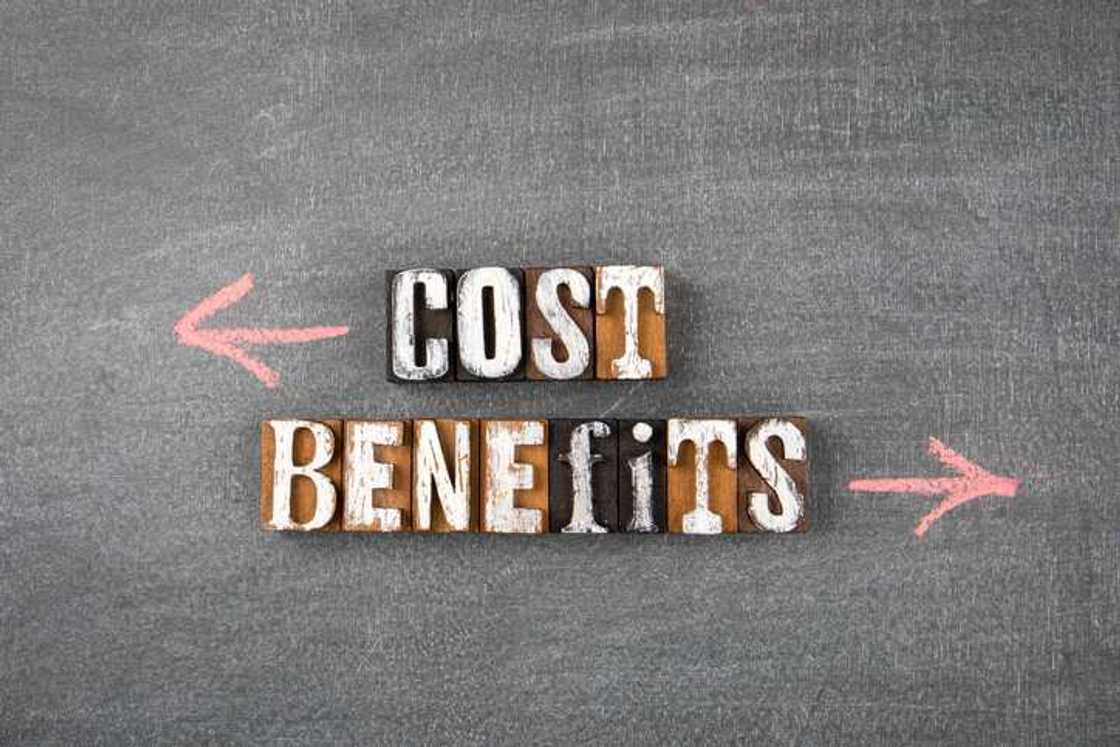Scale of preference in economics: Definition, importance, and other details
Understanding the scale of preference in economics is important because it affects businesses daily. Economics is primarily about the ultimate satisfaction of consumer needs. Hence, the scale of preference is a concept that helps an entrepreneur prioritize their clients' needs and eventually understand goods and services on demand.

Source: UGC
TABLE OF CONTENTS
- Key takeaways
- The scale of preference in economics
- What are the 4 economies of scale?
- What are the 6 types of economies of scale?
- What is the preference order in economics?
- What are the types of scale of preference in economics?
- What are the 5 importance of scale of preference in economics with examples?
Key takeaways
- The scale of preference is a ranked list of unsatisfied wants, from most to least important, used to manage limited resources.
- It helps prioritize needs for individuals, businesses, and governments.
- It reduces wastage by focusing on high-priority wants first.
The scale of preference in economics
Some commodities, especially basic needs, will always be prioritized due to their recurrent nature. Therefore, humans make a prioritized list of items and services they would like to purchase. Everyone has different preferences.
What is the scale of preference in economics, with examples?
If asked to define the scale of preference in economics, it refers to the importance individuals place on particular needs and wants. Hopefully, the scale of preference example below will help you understand how it determines the demand and supply of goods in the market.
The scale of preference also helps consumers make prudent financial decisions. For instance, a man who has $5000 but wants a house worth $3500 and a car set worth $2000 needs an extra $500 to accomplish his goal.
Since a home is more important than a car, he will buy the house, then look for the other $500 to buy the car later. As a result, a businessperson will start a real estate agency rather than a car dealership.

Source: Getty Images
How do economics and the scale of preference relate?
The scale of preference is a vital tool in economics for determining the real demand for goods. Moreover, it benefits both the seller and the buyer because resources are scarce and demand keeps growing. Hence, they will have to prioritize what to sell and consume.
The supplier will discover goods in demand for efficient production and supply, while the consumer will make the right and timely decisions to fulfil their wants. Hence, the preference scale promotes the efficient distribution of goods with a limited supply.
Why is the scale of preference important?
The benefits of this concept cannot be overlooked. The primary importance of the scale of preference in economics is creating a bond between consumers and suppliers for mutual satisfaction. Others include:
Benefits to the consumer
- It helps consumers stay within their financial limitations.
- It promotes better resource utilization because everyone knows the sellers are doing their best to produce enough for the market, given the limited resources.
- Individuals learn to prioritize what is essential, thus improving their satisfaction levels.
Benefits to the seller
- The knowledge helps the business person efficiently utilize the limited available resources.
- It helps the seller produce enough items for customers, meaning no excess will go to waste, or a deficit will not meet demand.
- It helps the seller achieve optimal profits in the market by producing enough items to meet demand with minimal losses.
Table of scale of preference
A scale of preference can be a written list or a mental list. However, writing it down makes it easier to remember your decisions. Here is an example of Ella's preference scale list. She has $1000 and has carefully arranged her sitting room's wants in order of priority:

Source: UGC
Opportunity cost
Another key idea in economics is 'opportunity cost'. It is the value one stands to benefit from choosing one decision over the other. So, for instance, you can buy cakes and bread for your toddler, but forgo the value of bread and cakes.
Here, importance is not considered, but what you love is what you get. The concept enables efficient resource allocation despite its setbacks. Some of its shortcomings include:
- It is confined to specificity, but some products and services cannot be put to alternative uses. For instance, you cannot forgo rent for something else. You must pay your rent or risk being evicted.
- It is affected by inertia because alternatives that are difficult to move result in subsequent payments that exceed the transfer costs.
- It assumes the idea of perfect competition, which is more of a business myth than reality. For instance, some car brands cannot compete with others in wealthy residential areas. The rich will go for high-end brands.

Source: Getty Images
What is the difference between opportunity cost and the scale of preference?
The trick is in how both ideas work because both include making sacrifices. However, they can both be used to drive businesses to success (for the seller) and live life to the fullest (for the consumer).
The scale of preference is about addressing critical needs first (something you cannot do without for that period), while the opportunity cost is about getting what you love, even if it is not an essential need.
These concepts work together because you need a house, school, and other basic needs, but you choose what you love. In the same case, sellers need to provide consumers with what they demand while considering what people love.
What are the 4 economies of scale?
The four main economies of scale are:
- Technical economies (cost savings from efficient machinery and technology)
- Managerial economies (specialization and better management)
- Financial economies (access to cheaper credit and finance)
- Marketing economies (lower advertising and distribution costs due to bulk buying and wide reach)
What are the 6 types of economies of scale?
The 6 primary types of internal economies of scale, which allow large firms to reduce per-unit costs as output increases, are technical, purchasing, managerial, financial, marketing, and risk-bearing.
What is the preference order in economics?
In economics, preference order (or the scale of preference) is the ranking of an individual’s needs or wants from the most important to the least important. It helps people decide which wants to satisfy first when resources are limited.
What are the types of scale of preference in economics?
In economics, examples of scale of preference are usually categorized by urgency and importance. They include:
- Primary (or basic) needs: Essential for survival, like food, water, and shelter.
- Secondary (or important) needs: Necessary for comfort and well-being, like clothing and education.
- Tertiary (or luxury) needs: Non-essential wants that enhance lifestyle, like gadgets or vacations.
In decision-making, the scale of preference in the economics formula is a ranked, prioritized list of unsatisfied wants, ordered from most important to least important. It is used to manage limited resources and help determine which wants to satisfy first based on their utility and the scarcity of resources.
What are the 5 importance of scale of preference in economics with examples?
The scale of preference is important in economics because it helps individuals and societies make choices when resources are limited. Five key points are:
- Prioritization of needs: It helps decide which needs to be satisfied first. Example: Buying food before luxury clothes.
- Efficient resource use: Ensures scarce resources are allocated to the most important needs. Example: Using money for school fees rather than entertainment.
- Decision making: Guides individuals and businesses in making informed choices. Example: A farmer planting staple crops before cash crops.
- Avoids wastage: Reduces spending on less important wants. Example: Fixing essential household items before buying decorative items.
- Economic planning: Helps governments and organizations allocate resources effectively. Example: Funding healthcare and education before non-essential projects.
The scale of preference in economics notes explains how individuals rank their wants from most to least important to manage limited resources. Any businessperson and consumer should apply the concepts of scale of preference and opportunity cost to achieve their financial goals. Do not wait for financial disasters to strike your business or household because of misplaced priorities. Instead, implement these ideas and see how they work out.
Yen.com.gh also lists profitable business ideas in Ghana. Some people start businesses because the job market is yet to absorb them. However, the best time to start a business is to develop a passion for entrepreneurship.
Therefore, do not get into business with a second thought. Instead, focus on it, and you will prosper even more than you would if you were in the employment sector.
Source: YEN.com.gh

Chris Ndetei (Lifestyle writer) Christopher Ndetei is a writer who joined the Yen team in May 2021. He graduated from Machakos Technical College in 2009 with a Diploma in ICT and has over four years of experience in SEO writing. Christopher specialises in lifestyle and entertainment coverage, with a focus on biographies, life hacks, gaming, and guides. He has completed the AFP course on Digital Investigation Techniques (2023) and earned the Google News Initiative Certificate (2024). In recognition of his work, he was named Yen Writer of the Year in 2024. You can connect with him via email at chrisndetei@gmail.com.

John Ouma (Lifestyle writer) John Ouma is a journalist with six years of experience. He has published sharply argued think pieces that live at the intersection of power, politics, and society. He was awarded the FirstGen scholarship by Biola University and a merit-based scholarship by AMDA College and Conservatory of the Performing Arts in January 2021. He has worked for The Standard and Nation Africa as an opinion columnist between 2018 and 2022. He is currently working on his first novel—a literary fiction that traces the life of a contemporary Kenyan artist. Email: gervasjohn97@gmail.com







